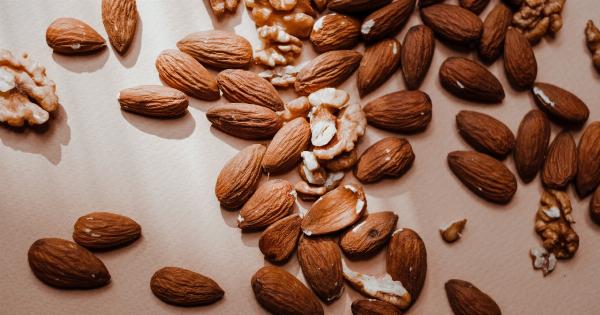Your heart is a vital organ that plays a crucial role in keeping you alive and functioning properly. It is responsible for pumping blood, delivering oxygen and nutrients, and removing waste from your body.
Taking care of your heart health should be a top priority, and one way to achieve this is by consuming foods that promote a healthy heart.
1. Fish
Eating fish, such as salmon, mackerel, and tuna, is highly beneficial for heart health due to their high omega-3 fatty acid content. Omega-3 fatty acids help reduce inflammation, lower blood pressure, and decrease the risk of heart disease.
Including fish in your diet a few times a week can significantly contribute to maintaining a healthy heart.
2. Berries
Berries, including strawberries, blueberries, and raspberries, are packed with antioxidants, which help prevent heart disease.
These delicious fruits are also rich in fiber, vitamins, and minerals, making them an excellent addition to your heart-healthy diet. Consider adding a handful of berries to your morning cereal or enjoying them as a snack.
3. Leafy Green Vegetables
Leafy green vegetables, such as spinach, kale, and Swiss chard, are loaded with vitamins, minerals, and antioxidants, all of which promote heart health.
These vegetables also contain high levels of dietary nitrate, which helps to lower blood pressure and improve the functioning of the cells lining the blood vessels.
4. Whole Grains
Incorporating whole grains, such as oats, quinoa, and brown rice, into your diet can significantly benefit heart health. Whole grains are an excellent source of fiber, which helps reduce bad cholesterol levels and lowers the risk of heart disease.
Swap out refined grains for whole grains to maximize the heart-boosting benefits.
5. Nuts
Nuts, including almonds, walnuts, and pistachios, are rich in heart-healthy fats, fiber, and antioxidants. These crunchy snacks can help lower bad cholesterol levels, reduce inflammation, and improve blood vessel health.
However, it’s essential to consume nuts in moderation due to their high calorie content.
6. Olive Oil
Using olive oil as your primary source of fat in cooking instead of other oils and fats can have significant positive effects on heart health.
Olive oil is rich in monounsaturated fats, which can help lower bad cholesterol levels and reduce the risk of heart disease. It is best to opt for extra virgin olive oil for maximum benefits.
7. Dark Chocolate
A treat that can also benefit your heart health? Yes, please! Dark chocolate, with a cocoa content of 70% or higher, is rich in flavonoids, which have antioxidant properties.
These antioxidants can help improve blood flow, lower blood pressure, and reduce the risk of blood clots. Enjoy a small piece of dark chocolate as an occasional indulgence.
8. Tomatoes
Tomatoes are a rich source of lycopene, a powerful antioxidant that gives them their vibrant red color.
Lycopene has been shown to reduce the risk of heart disease by preventing the oxidation of low-density lipoprotein (LDL) cholesterol, also known as “bad” cholesterol. Tomatoes can be enjoyed in salads, sauces, or even as a standalone snack.
9. Legumes
Legumes, such as beans, lentils, and chickpeas, are excellent sources of protein, fiber, and minerals. They are also low in fat and contain no cholesterol, making them a heart-healthy alternative to high-fat animal protein sources.
Incorporating legumes into your diet can help lower bad cholesterol levels and reduce the risk of heart disease.
10. Green Tea
Swap your usual sugary beverages for a cup of green tea to reap the heart-protective benefits.
Green tea contains catechins, which are antioxidant compounds that can help reduce cholesterol levels, lower blood pressure, and decrease the risk of heart disease. Aim to drink at least one cup of green tea daily to support your heart health.
Conclusion
Protecting your heart health is essential for overall well-being and longevity. By incorporating these heart-healthy foods into your diet, you can reduce the risk of heart disease, lower blood pressure, and improve overall cardiovascular health.
Remember to combine a nutritious diet with regular physical activity and other healthy lifestyle habits for optimal heart health.






























